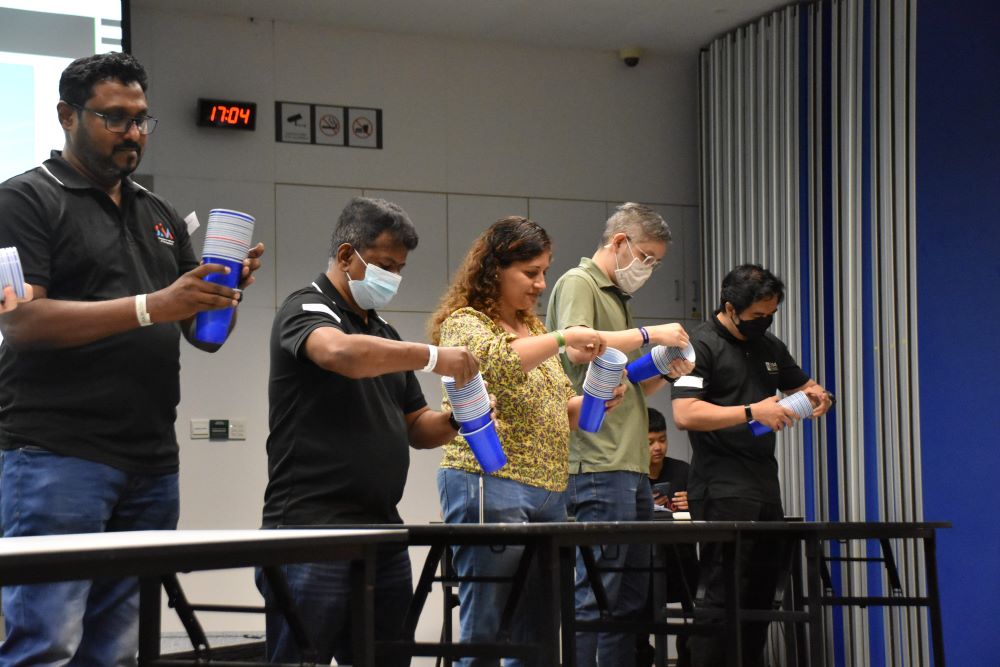What Makes a Team Great and How to Achieve It
In today’s dynamic and interconnected world, the power of a great team cannot be overstated. A high-performing team not only drives organizational success but also fosters innovation, enhances employee satisfaction, and builds a resilient company culture. But what exactly makes a team great, and how can organizations cultivate these qualities? Let’s explore the key characteristics of outstanding teams and the steps to achieve them.
Characteristics of a Great Team
- Clear Goals and Objectives
- Purpose and Direction: Great teams have a clear understanding of their goals and the purpose behind their work. This shared vision aligns their efforts and motivates them to achieve common objectives.
- Measurable Outcomes: Setting specific, measurable, achievable, relevant, and time-bound (SMART) goals ensures that team members can track progress and stay focused on the end results.
- Strong Leadership
- Visionary Leaders: Effective leaders inspire and guide their teams, providing a clear vision and direction. They lead by example, setting high standards for performance and behavior.
- Supportive Mentors: Great leaders are also mentors who support their team members’ growth and development, offering guidance, feedback, and encouragement.
- Effective Communication
- Open Dialogue: Successful teams prioritize open, honest, and transparent communication. Team members feel comfortable sharing ideas, giving feedback, and expressing concerns without fear of judgment.
- Active Listening: Great communicators listen actively and empathetically, ensuring that everyone’s voice is heard and valued.
- Diverse Skill Sets and Perspectives
- Complementary Skills: A diverse team brings together individuals with a wide range of skills, expertise, and perspectives. This diversity fosters creativity, innovation, and comprehensive problem-solving.
- Inclusion and Respect: Inclusivity is crucial for leveraging diverse talents. Respecting and valuing each team member’s contributions creates a positive and collaborative environment.
- Trust and Collaboration
- Mutual Trust: Trust is the foundation of any great team. Team members rely on each other’s abilities, integrity, and commitment to the team’s success.
- Collaborative Spirit: Effective teams work together seamlessly, sharing responsibilities, supporting one another, and leveraging each other’s strengths to achieve common goals.
- Adaptability and Resilience
- Flexibility: Great teams are adaptable and open to change. They can pivot quickly in response to new challenges and opportunities.
- Resilience: They maintain a positive attitude and persevere through setbacks, learning from failures and continuously improving.
- Recognition and Reward
- Acknowledgment: Recognizing and celebrating individual and team achievements boosts morale and motivates continued excellence.
- Fair Rewards: Providing appropriate rewards and incentives for hard work and success reinforces positive behaviors and commitment.
Steps to Achieve a Great Team
- Define and Communicate Clear Goals
- Establish and communicate clear goals and objectives that align with the organization’s vision and mission. Ensure that every team member understands their role in achieving these goals.
- Foster Strong Leadership
- Develop leadership skills within the team. Encourage leaders to be visionary, supportive, and empathetic, guiding the team towards success while nurturing individual growth.
- Enhance Communication
- Promote open and transparent communication. Hold regular meetings, encourage feedback, and create an environment where everyone feels comfortable sharing their thoughts and ideas.
- Embrace Diversity
- Build diverse teams with complementary skills and perspectives. Promote an inclusive culture that values and respects each member’s unique contributions.
- Build Trust and Collaboration
- Encourage team-building activities and exercises that foster trust and collaboration. Create opportunities for team members to bond and develop strong working relationships.
- Encourage Adaptability
- Promote a culture of flexibility and continuous improvement. Encourage team members to embrace change, learn from experiences, and adapt to new circumstances.
- Recognize and Reward Achievements
- Implement a system for recognizing and rewarding individual and team accomplishments. Celebrate successes and provide incentives that motivate continued high performance.
Conclusion
Building a great team requires a thoughtful and strategic approach, focusing on clear goals, strong leadership, effective communication, diversity, trust, adaptability, and recognition. By fostering these qualities, organizations can create high-performing teams that drive success, innovation, and a positive work culture. Investing in team development not only enhances productivity but also contributes to a more engaged, motivated, and cohesive workforce.
To head back to read another article in our blog, click here.

